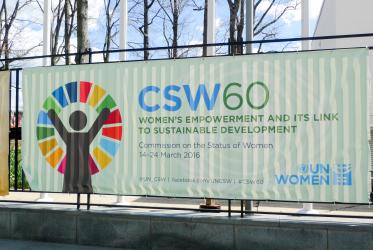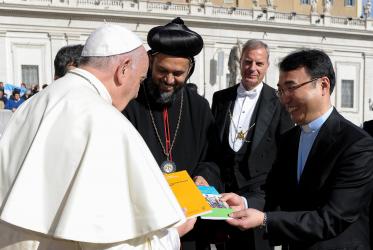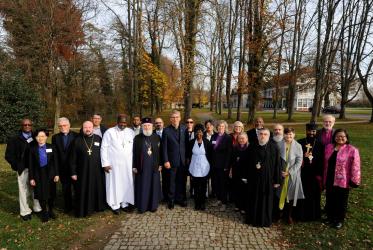Displaying 141 - 160 of 190
Catholic-WCC group pursues new mandate
13 April 2016
Pope Francis receives two publications from WCC commission leaders
26 February 2016
WCC Executive Committee works toward a future of peace and justice
19 November 2015
Common prayer in Geneva responds to acts of violence
16 November 2015
WCC more united in the pilgrimage of justice and peace
13 November 2015
WCC Executive Committee convenes to review ecumenical progress
13 November 2015
Local and global work saves lives
22 October 2015
Conflict reporting fails women
06 October 2015
WCC Annual Review 2014
28 April 2015
Gender sharpens mission conversations
21 April 2015
Marianne Ejdersten appointed as WCC director for Communication
03 December 2014














